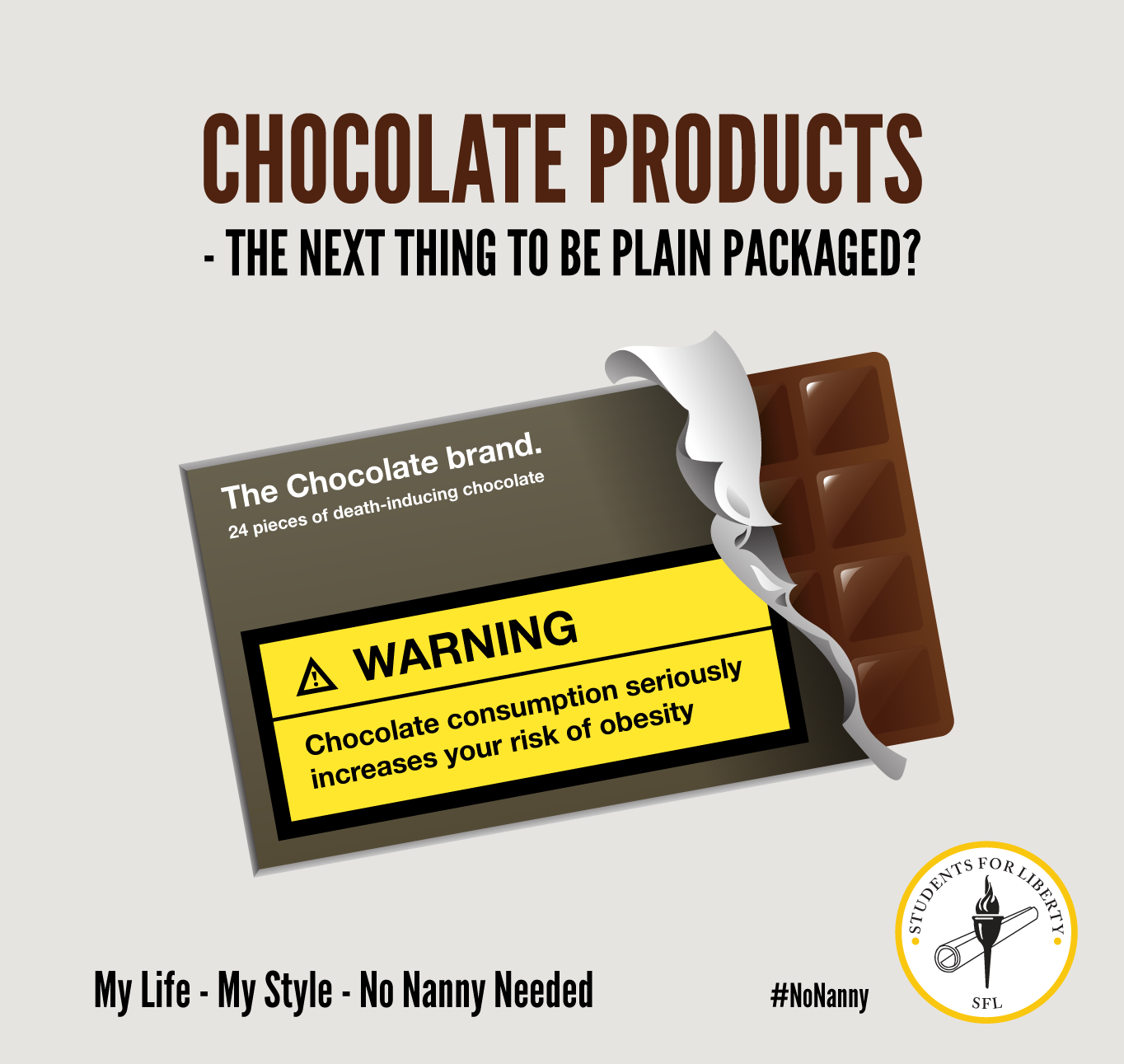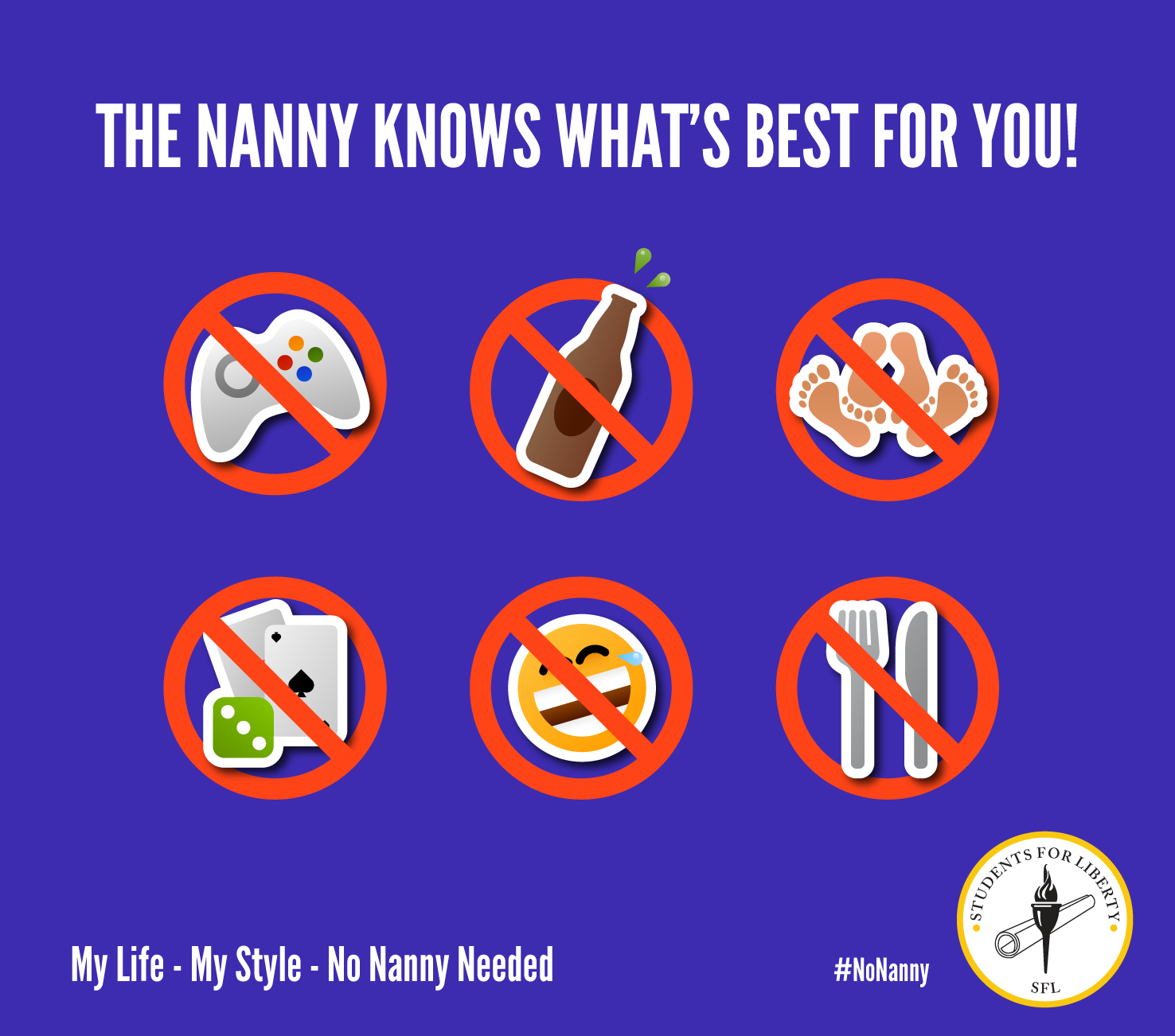#FREETOCHOOSE
The Government very often acts like our nanny by passing laws to preserve ‘morality’, ‘decency’ or ‘public health’. A free society comprises of individuals with a wide array of personal choices. Do we need a Nanny State to dictate certain decisions for everyone?

The August 2015 report from Public Health England, an arm of the U.K.’s health service, reported that e-cigarettes are 95% safer than cigarettes. This April the Royal College of Physicians cited that figure and urged smokers to switch to vaping.
Media reports have fed the idea that e-cigs pose all sorts of dangers. In January 2015 the New England Journal of Medicine published a study that showed toxic levels of formaldehyde could be produced by a high-powered vaporizer. The report also noted that no one would ever heat e-liquid to that temperature. Likewise, when a Harvard study showed the presence of the chemical diacetyl in 75% of e-liquids, there were headlines about e-cigs causing irreversible scarring of the lungs, despite the fact that diacetyl is present in extremely low doses. The toxic chemical is hundreds of times more plentiful in traditional cigarettes.
WHO is considering prohibitive taxes and regulations on e-cigarettes. These laws will keep people from quitting, which can potentially cut millions of lives shorter.

High taxes increase the incentive for producing illegal cigarettes completely outside the tax regime. In this case, cigarettes are produced in illegal, unregulated factories and sold on the black market. According to a recent FICCI study, the overall market for illegal cigarettes in India is now estimated at 22.8 per cent of the cigarette industry. The share of legally manufactured cigarettes in total tobacco consumption in India has declined from 21% in 1981-82 to 12%. During the same period, overall tobacco consumption increased by 42%.
Many smokers respond to cigarette taxes in dangerous ways by switching to cigarettes that are higher in tar and nicotine. But because high-tar cigarettes pose a greater risk, this response undermines the goal of improving public health.
Studies have shown that in the tobacco industry, consumers’ willingness to switch from smoking legally purchased cigarettes and tobacco to contraband products increases with tax hikes.

Consumption and trade of marijuana is a criminal offence in India. Drug related offences are usually not treated as the gravest ones internationally. However, in India the punishment can be as severe as a death penalty.
Therefore, smugglers and peddlers have created networks to meet the underlying demand. Most cases of death from drugs happen because of intoxicants and overdose, which are unlikely to happen with standardised products and quality control measures in a legal market.
Legalisation doesn’t increased the number of dependents. Despite the War on Drugs, America has the highest rates of cocaine and marijuana use in the world, and while most of the E.U. has more liberal drug laws than the U.S., it has less drug use. Following decriminalization, Portugal had the lowest rate of lifetime marijuana use in people.
Let people choose, we don’t need you nanny.
EVER MORE FREQUENTLY, MORE LAWS ARE PASSED WHICH LIMIT OUR INDIVIDUAL FREEDOMS
This is true for our consumer behavior as much as our personal behavior, regulating what we can buy, sell, consume, eat, drink, smoke, vape, gamble, and much more.
This puts products like meat and sugar in the same category as tobacco and alcohol, and reduces our capacity for choice at the behest of the Nanny State.
That's why we say #NoNanny.
MY LIFE MY CHOICE
#NONANNY
South Asia Students For Liberty is launching a quiz on lifestyle regulation to bring attention to the absurd regulations in place in India which limit our individual freedoms and choices.
This quiz is part of a movement to fight against the laws and rules put in place by governmental agencies who want to tell us how to live our lives and what we should put into our bodies. These regulations limit not only our personal choices in our own lives, but also in the marketplace. Young people cherish their freedom and cherish their ability to make their own individual decisions without the Nanny State's interference. #NoNanny needed!
20,000+
YOUNG PEOPLE ATTENDED OUR EVENTS IN 2015 AND ARE LEADING THE MOVEMENT TO PROTECT INDIVIDUAL FREEDOMS ALL OVER THE WORLD
Limitless
INVITE PEOPLE TO TAKE THE QUIZ AND TAKE PART!





